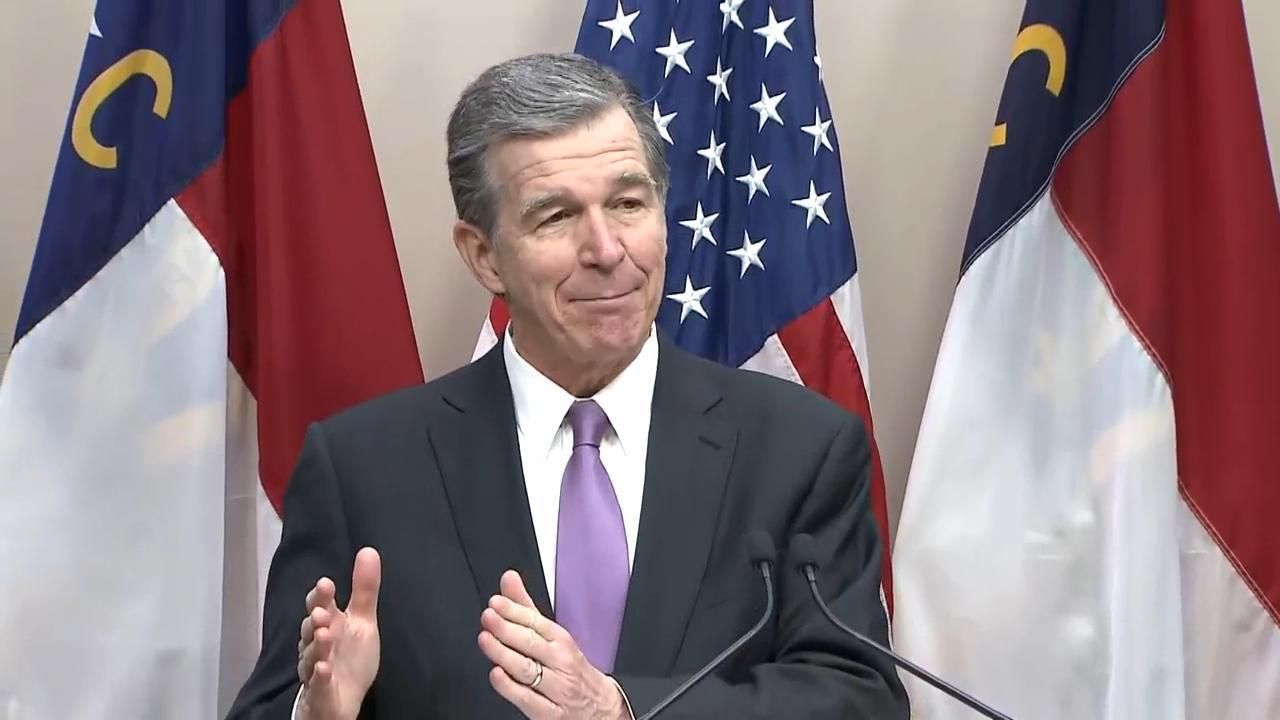Cooper signs sugary snack restrictions during school, other education measures into law

Gov. Roy Cooper has signed two more education bills into law.
On Friday, he signed a bill that extends virtual academy operations and a bill that includes a hodgepodge of education items, including a ban on sugary soft drinks at high schools during the school day.
The governor has yet to sign lawmakers’ proposed budget for this year nor another education bill — Senate Bill 593.
That bill, primarily, creates school boards for the state’s deaf and blind schools. It also fleshes out rules related to admission to the schools.
Lawmakers’ proposed budget includes educator pay raises and more school building funds — though below what Cooper pushed for — more than $80 million more for private school vouchers, more than $40 million more for school resource officers and additional funding for school safety.
Sticking with virtual academies
Cooper signed Senate Bill 671 on Friday. It outlines requirements for “remote academies” operating next year and beyond, including an evaluation of whether they are working.
At the same time, the bill removes the state's two virtual charter schools from pilot program status. It also extends the schools' charters five more years, bypassing the State Board of Education's charter approval process and Department of Public Instruction vetting. Those schools -- NC Cyber Academy and NC Virtual Academy -- have been criticized for comparatively poor academic performance. The bill also allows those schools to increase their enrollment by up to 20%.
Sugary snack restrictions, plus other education items
On Friday, Cooper signed House Bill 159, which covers numerous education policy changes, including changes that make becoming an early childhood educator and NC Pre-K teacher easier amid staff shortages and student waitlists.
The bill allows middle schools to begin selling sugared soft drinks — not including diet sodas — 30 minutes after the school day ends, instead of not at all. But it removes a provision that said high school vending machines could sell sugared soft drinks, for up to 50% of their offerings. Now, the provision that limits sales in middle schools would apply to high schools, banning them from selling sugared soft drinks at all until 30 minutes after the school day.
During committee, lawmakers said the bill was meant to permit sugared soft drink sales at middle schools, after school, where they had been banned by law.
The bill also limits vending machines in middle schools and high schools to only snacks with just 200 or fewer calories per portion or package. Previously, up to 25% of vending machine products could be more than 200 calories per portion or package.
Schools can set more strict vending machine rules than what the law permits.
The bill also gives charter schools the ability to prioritize enrollment for the grandchildren of employees or school board members, instead of just children, though family cannot exceed 15% of enrollment.
House Bill 159 also requires a one-time survey that asks schools what their threat assessment policies are, what threats they’ve identified and what action they took in response to those threats. Many school systems do not have threat assessment teams that anyone other than law enforcement participate in.
No action yet on schools for deaf and blind
Senate Bill 593, yet to be signed, removes the state’s deaf and blind schools from being overseen directly by the State Board of Education.
It places the state schools for deaf and blind students under the purview of five-member boards of trustees and other non-voting advisors. The five-member board would be comprised of two nominees from the state House, two nominees from the state Senate and one nominee from the governor.
The bill has received little opposition or debate, though committee discussion has included questions of whether the bill would hinder admissions for students with multiple disabilities.











